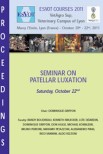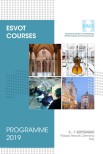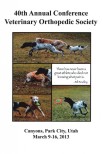Objective-To determine the accuracy of ultrasonography in detecting fragmentation of the medial coronoid process (FMCP) in dogs. Design-Cross-sectional study. Animals-102 dogs (112 elbow joints) suspected to have FMCP. Procedures-Elbows were examined ultrasonographically prior to surgery for evidence of fragmentation, fissuring, or deformation of the medial coronoid process; thickening of the joint capsule; joint effusion; and secondary new bone formation. Results were compared with intraoperative findings. Results-At surgery, 51 (46%) joints had free fragments, 55 (49%) had nondisplaced fragments, and 6 (5%) did not have any fragments or fissures. Fragments were not seen ultrasonographically in 23 of the 51 (45%) joints in which a free fragment was found during surgery or in 50 of the 55 (91%) joints in which a nondisplaced fragment was found during surgery. Accuracy of using ultrasonographic evidence of any medial coronoid process abnormality (ie, a medial coronoid process fragment, deformation of the medial coronoid process, or both) for diagnosis of medial coronoid process fragmentation was 77%. The kappa coefficient for the level of agreement between ultrasonographic (ie, any medial coro-noid process abnormality) and surgical findings was -0.014, indicating that there was no agreement. Conclusions and Clinical Relevance-Results suggested that ultrasonography was of limited diagnostic value in detecting FMCP in dogs.
Accuracy of ultrasonography in detecting fragmentation of the medial coronoid process in dogs.
Date
2009 Feb 15
Journal
JAVMA
Volume
234
Number
4
Pages
480-485









